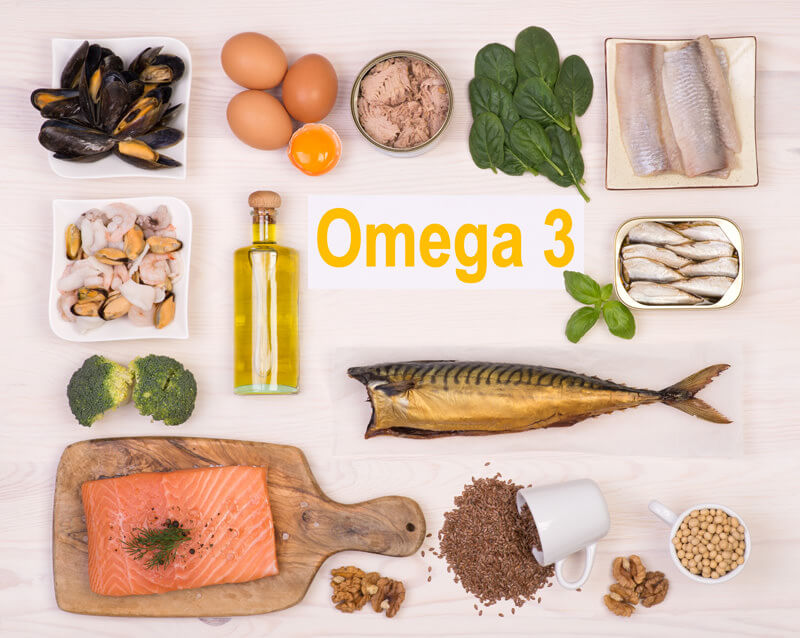As humans, we never truly appreciate our senses until we lose them. One of the many things we should be thankful for is our senses of smell, touch, sound, taste, and sight. Isn't it horrible to wake up one day and not be able to see, touch, hear sound, or smell?
Many people take their sense of sight for granted because they believe that vision problems can be corrected with the help of lenses or spectacles. People even take it lightly now that we have advanced technology, such as Lasik surgery, because they believe there is a cure. When, in fact, there are numerous health complications or conditions that can impair your ability to see, such as being diagnosed with diabetes. Isn't it terrifying?
The good news is that nutrition can prevent this from happening! A varied and balanced diet can help to prevent many diseases, including blindness. Many studies have found that consuming antioxidants, also known as cancer fighting agents, can help prevent vision loss. Antioxidants are compounds that aid in the scavenging of free radicals that can cause cell mutation and cancer.
Since many of these antioxidants are found in plant-based diets such as vegetables and fruits, one mechanism for this is said to be due to the prevention of other chronic diseases such as hypertension and diabetes, lowering the risk of vision loss. Lutein and zeaxanthin, vitamin A, omega 3, and vitamin C are all antioxidants that have been linked to vision health (2).
Lutein and zeaxanthin are members of the carotenoid family, which is a well-known antioxidant for eye health. Apart from being found in green leafy vegetables like spinach, it can also be found in yellowish, orange-red plant-based foods like capsicum. In nature, lutein and zeaxanthin appear to absorb excess light energy to protect plants from overexposure to sunlight, particularly high-energy light rays known as blue light. While in the human body, lutein and zeaxanthin are abundant in the macula of the human eye, the name 'macula lutea' is derived from lutein, which means yellow spot.

The National Eyes Institute (NEI) conducted research on lutein, zeaxanthin, and the effect of carotenoids supplement taking in May 2013. It is the second largest eye- disease research study, namely, AREDS2. The purpose of this study was to see how nutrients, such as lutein and zeaxanthin, affected the prevention of AMD and other age-related eye diseases. For five years, participants in this study were given 10 mg of lutein and 2 mg of zeaxanthin every day. The use of daily antioxidant supplementation reduces the risk of progressive Age-related-Macular Degeneration (AMD) by 25% among those with early and intermediate macular degeneration, according to this study. However, it is unclear whether it can aid in the prevention of cataracts and their complications.
Vitamin A is another common antioxidant for the eyes. Night blindness is commonly caused by a lack of vitamin A. Vitamin A functions as photoreceptors, where it aids in the maintenance of light-sensing cells in the eyes. It's found in animal-based foods like dairy and egg yolk.
Omega 3 Fatty Acids (1,2)
EPA and DHA, which are derived from omega-3 fatty acids, are essential not only for brain development during infancy, but also for vision health. A study of people with dry eyes found that taking EPA and DHA supplements daily for three months significantly reduced dry eye symptoms by increasing tear fluid production (lacrimal fluid). Oily fish is a good source of EPA and DHA, and microalgae supplements are also available.

Vitamin E (1,3)
Vitamin E is a fat-soluble vitamin that protects fatty acids from oxidation. Because the retina contains a high concentration of fatty acids, adequate vitamin E intake is essential for good eye health. A study that supplemented 7 mg of vitamins E found that it can reduce the risk of age-related cataracts by 6%. However, a randomized controlled study discovered that vitamin E supplementation does not slow or prevent the progression of people who already have eye problems. Almonds, sunflower seeds, and flaxseed oil are good sources of vitamin E.
Vitamin C (1,3)
Vitamin C is commonly consumed for skin purposes, but since many studies have discovered that vitamin C is an important antioxidant for eye health as well, many supplements are now beginning to incorporate vitamin c rich sources in eye supplementation. It's a good thing because it gives you two effects in one!
Zinc (1,3)
Zinc is abundant in the eyes. It functions as a transporter for vitamin A, which is later involved in the formation of visual pigments in the retina known as melanin. As a result, zinc deficiency has been linked to night blindness. Oysters are a natural dietary resource high in zinc that is also beneficial to men's health!
In conclusion
Taking care of your vision health entails more than just avoiding screens and wearing sunglasses when you go outside. It is also what you put inside your body. Again, healthy eating is important for overall health, including vision!
References
All About Vision. Lutein and Zeaxanthin. Eye and vision benefits. https://www.allaboutvision.com/nutrition/lutein.htm (Accessed on Aug, 26, 2020).American
Optometric Association (AOA). Diet and Nutrition. Adding Powerful Antioxidants in your diet. https://www.aoa.org/healthy-eyes/caring-for-your-eyes/diet-and-nutrition?sso=y (Accessed on Aug, 26, 2020)
8 Nutrients that will optimize your eye health. https://www.healthline.com/nutrition/8-nutrients-for-eyes. (Accessed on Aug 26, 2020)